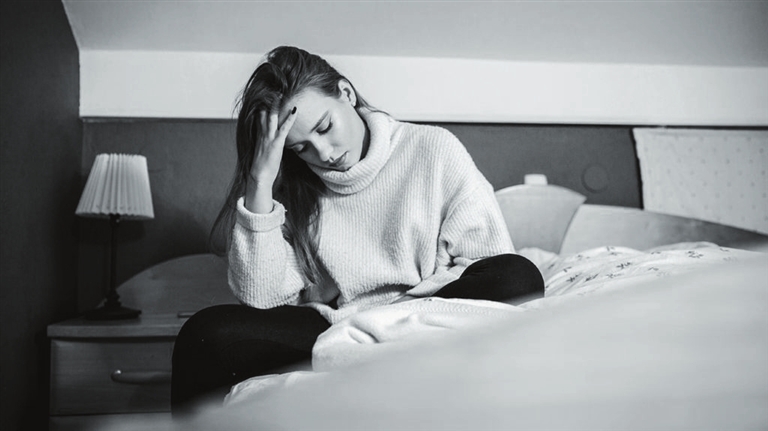
A LACK of sleep may affect a person’s emotional well-being. Missing out on a good night’s sleep is a well-known cause of cognitive and emotional problems and making people more accident-prone the next day. Over longer periods, sleep deprivation is associated with worse mental and physical health. The National Sleep Foundation in the United States recommend that teenagers get 8-10 hours of sleep a night and that adults under 65 years of age get 7-9 hours. Most research into the cognitive and emotional effects of sleep deprivation involves volunteers spending several nights in the unfamiliar surroundings of a sleep laboratory. Psychologists in Norway wanted to investigate the effects under more natural circumstances, while people were at home and sleeping in their own beds. They discovered that less sleep led the participants to feel worse the next day, but not in the sense of feeling down or depressed. Rather, they experienced fewer positive emotions. “They felt less joy, enthusiasm, attention, and fulfillment,” says Ingvild Saksvik-Lehouillier, associate professor of psychology at the Norwegian University of Science and Technology, who led the research. The psychologists say that their findings indicate that staying up late on work or school nights could impair people’s ability to manage stress and negative life events. “We already know that fewer positive emotions have a major impact on mental health,” says Saksvik-Lehouillier. “We also know that poor sleep is included in virtually all mental health diagnoses.” After getting less sleep than normal, study participants also behaved more impulsively and were more prone to making mistakes on a standard test. The research features in the journal Sleep. The study tracked 52 healthy adults aged between 18 and 35 years over a period of 11 days. After maintaining their normal sleep habits for seven days, the participants went to bed two hours later than usual for the last three nights of the study but got up at their regular time. On the mornings after the three late nights, the participants’ response times decreased on the attention test, which suggests that they were becoming more impulsive. They made progressively more mistakes over the three days. “We didn’t find clear differences when it came to the negative emotions, but there were marked differences for the positive ones,” says Saksvik-Lehouillier. “Positive feelings scored worse after just one night of reduced sleep and dropped even more after three nights.” The authors note that one possible limitation of their study was that 79 percent of participants were female, which could have introduced a gender bias to the results. Previous research suggests that females may be more vulnerable than males to the effects of sleep deprivation and that they may also experience more problems with sleep. (SD-Agencies) | 
